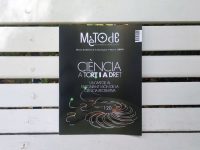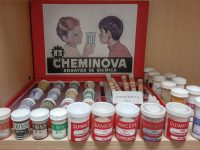
Recently, during one of the mentoring sessions on communication that I provide to a group of scientists from Panama, I asked them to think of a very specific message that they would like to convey. Then we would decide which medium would be the most appropriate, how to approach it, what emotion to start from, and so on. But the first thing was to be very clear about the message we wanted to communicate.
Rodolfo, a biologist and ethnobotany researcher who looks for new species as well as useful active principles and properties, said that in his country there was too much shamanism and too many people praising the apparently near-miraculous properties of native plants without any scientific evidence. He wanted to convey that we should be much more sceptical of this and always trust modern medicine and science first. A few turns later, an anthropologist, Yadixa, told us that she studied the use of medicinal plants in the indigenous cultures of the country and wanted to convey that there are known applications for multiple ailments. She also told us that she is an experiment because she has tried them and they have worked for her, that this ancestral knowledge should be used more and that some plants might even be useful against COVID-19. We had to slow her down a bit. Not because what she said was not interesting, or because we thought it should not be explained, but the fact remains that we were talking about scientific dissemination, so we had to be more rigorous: she is not an experiment and the knowledge of the indigenous tribes, no matter how much Yadixa shook her head, was not scientific. Perhaps it was accurate, but we could not consider it good or bad because it did not have any scientific research to back it up. At most, we could say that its efficacy was not scientifically proven, which, contrary to what the most scurrilous popularisers convey when they talk about these issues, does not imply that it is not effective. Still, unfortunately, we have these restrictions. Other journalists may be able to tell the stories and ancestral knowledge mentioned by Yadixa, but we cannot, because in our field we cannot stray too far from scientific data and scientific projects. Unless…
«Without being too naïve, I suggest talking even more about science that is still in the hypothesis phase, and even going out to look for informative topics outside the scientific world»
And so I asked Rodolfo and Yadixa to get together and design a joint «pre-scientific dissemination» project. With the right attitude and coupled with Rodolfo’s experimental methodology, Yadixa’s knowledge could be considered pre-scientific. In fact, it would be very nice to combine traditional indigenous culture with modern science and explain how certain populations have used certain plants therapeutically for generations, as well as how bioprospecting can test whether or not they have any real effect. And, if they do, how to proceed to find out what doses would be the most appropriate, what specific substances would be responsible for the purported benefit, or how they could be extracted.
The idea was so interesting to us that it was worth skipping a few rules. I mean, standard scientific dissemination says: «Well, let them do the experiments and when they have the results, we will tell them whether they work or not. But let’s not create false expectations beforehand». But I am a bit tired of so much sappiness disguised as rigour, which only leads to losing interesting stories along the way and presenting them disconnected from people and the real world. That is why I propose to create the concept of pre-scientific dissemination to talk about mysteries, enigmas, or hypotheses that could be confirmed or disproved by science, and to do so by involving the public in the process. In fact, we already see this when a cosmologist rambles on about superstring theory, or a molecular biologist sells us that their research on rats will help treat dementia. It is science at the hypothesis stage, but because they are in our profession, we trust them. Well, without being too naïve, I suggest talking even more about science that is still in the hypothesis phase, and even going out to look for informative topics outside the scientific world, to analyse and report on them with a pre-scientific perspective and, in the process, clarify whether they are true or not.
«I propose to create the concept of pre-scientific dissemination to talk about mysteries, enigmas, or hypotheses that could be confirmed or disproved by science»
Is this strategy risky? Maybe. If we identify a case that is not worth delving into, then we can just dismiss it so as not to create confusion; the point is not to emulate a mystery TV show host. But I think it is an opportunity to make more stimulating dissemination, connected to the problems and complexity of the real world. Because let’s face it: this complexity escapes science. In fact, scientists do not address complex questions, but rather simple ones: they do not investigate how the human brain works, but rather how a particular neurotransmitter connects to a specific receptor, or whether a certain neuronal circuit is activated by doing certain tasks, because this very limited problem is the one they can solve. And they use all this to try to put the puzzle together. But until they do, the questions and pre-scientific ways to solve them are just as exciting, if not more so, than the future and never definitive answers. Please understand me: it is great that researchers are as meticulous as possible, because this is what supports their conclusions and makes them more reliable than any other. But we, as disseminators, can remove some hindrances and not necessarily follow their rules to a «t» – like that tiresome idea that you cannot discuss their work until it has been published – and take advantage of the benefits that pre-scientific dissemination can offer us. I know that now you will tell me off for the supposed sacrilege of talking about preprints, but even here I disagree: a good science journalist does not only talk about already published articles (that is very easy) but has the eye and the tools to distinguish between a good preprint and a bad one. In this sense, perhaps pre-scientific dissemination is even more meritorious than scientific dissemination.





